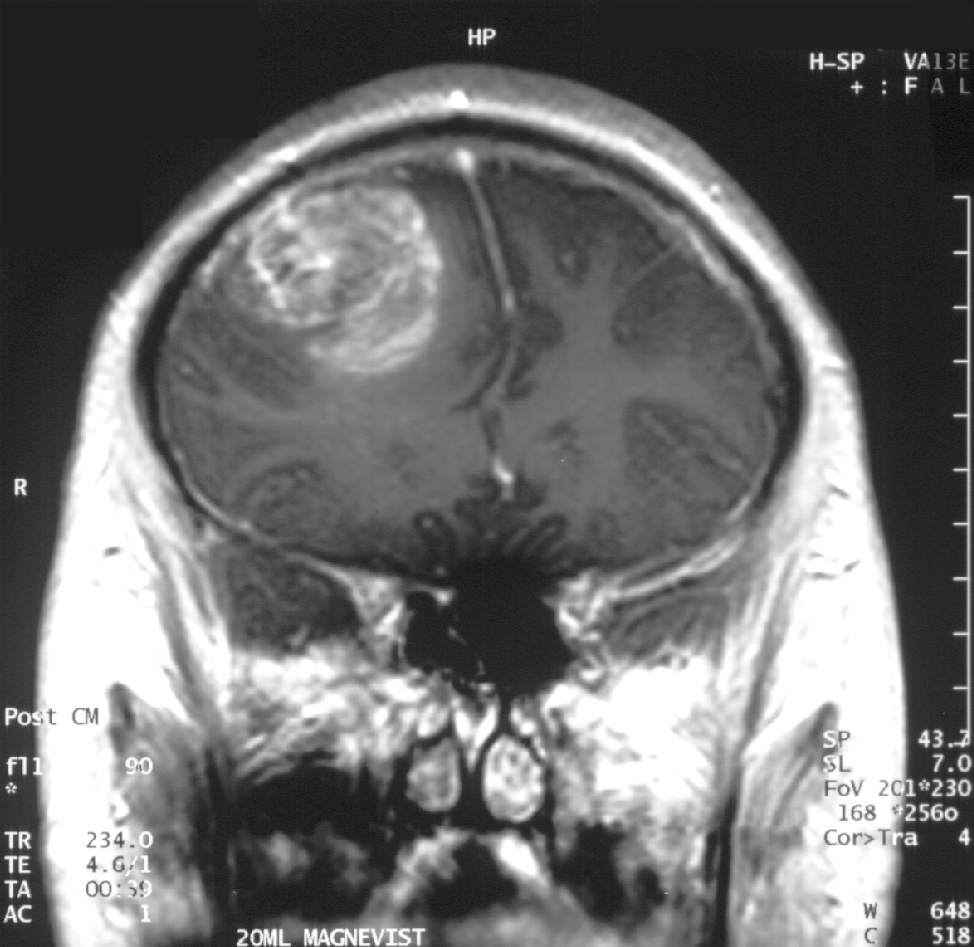 |
| MRI of glioblastoma – photo credit Wikipedia |
In a recent clinical trial of immunotherapy for glioblastoma, the most common and deadly form of brain cancer, there was no overall survival benefit shown in the group of patients treated, however, the researchers found that a subset of the patients did show a strong response and long-term survival.
The question then became how to identify those glioblastoma patients most likely to benefit from the therapy.
Led by Dr. Adam Sonabend, associate professor of neurosurgery at Northwestern University Feinberg School of Medicine, a team of researchers studied the subgroup of patients who responded to an immunotherapy called PD1 immune checkpoint blockade to find out why they responded and what if anything might identify these patients as likely responders.
PD1 is a protein found on T cells, the immune cells that attack cancers and other abnormal cells. PD1 helps keep the T cells in check, when blocked, it is like releasing the brakes on the T cells allowing them to kill the cancerous glioblastoma cells.
Sonabend’s team found just such a marker in the subset of patients that responded to the PD1 blockade therapy. They published the findings in the Nov. 29, 2021 journal Nature Cancer .
"We tried to see if there was something different about these tumors that indicated some patients would live longer when getting this immunotherapy," Sonabend said.
What they found was a biomarker identified as phosphorylated ERK. When there's a lot of phosphorylated ERK, the immunotherapy was most effective.
Now researchers will know what to look for in glioblastoma patients who are most likely going to benefit from PD1 immunotherapy.
"This is an important breakthrough for patients who have not had an effective treatment in the cancer drug arsenal available to them," Sonabend said in a press release. "It might ultimately influence the decision on how to treat glioblastoma patients and which patients should get these drugs to prolong their survival."
Sources: Northwestern University press release and Nature Cancer


No comments:
Post a Comment